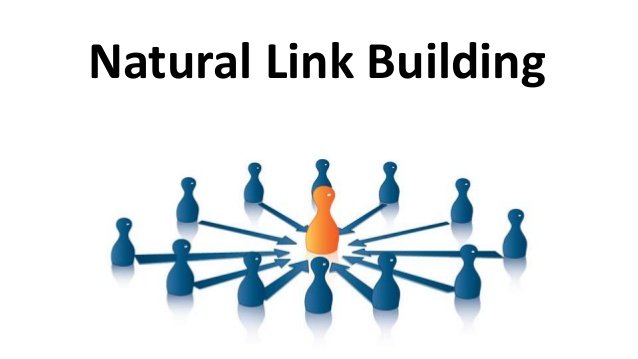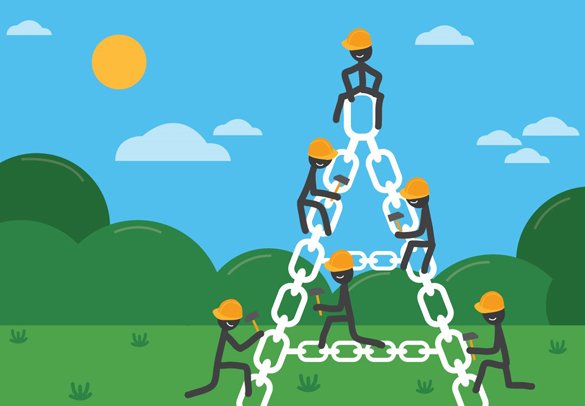Links are broadly classified into different types based on the nature of links, quality, and relevance. While other classifications are known, there are certain classifications that many may not be aware of. Here is a detailed explanation of these classifications – natural links, unnatural links, semi-natural links, and quality links. This explanation with examples will help gain a clearer understanding, helping website administrators and agencies to choose the best option.
What Are Natural Links?
Also known as editorial links, these links are earned naturally based on the quality and relevance of the content. Natural links are the most valuable type of links for SEO as they are usually from authoritative websites and can significantly improve a website’s search engine ranking.

For example, a blogger creates informative and engaging articles about new products or services and links the articles to the product page or website. This is considered a natural link as the blogger is linking to the product or website due to the relevance of the content and the fact that it provides value to the readers.
What Are Unnatural Links?
Also known as spammy or manipulative links, these links are obtained through artificial or unethical means. Unnatural links can harm a website’s search engine ranking and can even result in penalties or bans from search engines.
For instance, when a website owner buys or exchanges links with other websites to manipulate search engine rankings, it is considered an unnatural link. Similarly, that website uses automated programs or link farms to create hundreds or thousands of low-quality links, which will also be labeled as relying on unnatural links.
What Are Semi-Natural Links?
These links are earned through a combination of natural and artificial means. Semi-natural links are not necessarily harmful, but may not be as valuable as natural links in terms of improving search engine ranking and authority.
The classic example is that of a website owner who guest posts on another website and includes a link back to own website. This is technically considered a semi-natural link. While the link may be relevant and valuable to the readers, the website owner has also proactively sought out the opportunity to place the link.
What Are Quality Links?
These links are from authoritative and relevant websites. Quality links can significantly improve a website’s search engine ranking and authority.

For instance, when a website owner gets a link from a high-profile news website or a reputable industry publication, it is considered a quality link. Quality links are usually earned naturally based on the quality and relevance of the content and the website’s authority in the industry.
In conclusion, natural links are the most valuable type of links for SEO, while unnatural links can harm a website’s search engine ranking and authority. Semi-natural links may be useful, but they may not be as valuable as natural links. Quality links are the most valuable type of links as they are from authoritative and relevant websites. It is important to focus on developing a link building strategy that emphasizes natural and quality links and avoids unethical or manipulative tactics.
How Does Google Spot Quality Links?
It is time to look at what many consider the million-dollar question. How does Google spot or identify quality links? Google uses complex algorithms and machine learning models to identify and evaluate the quality of links. Some of the key factors that Google uses to spot quality links include the following:
Authority and Relevance of the Linking Website
Google assesses the authority and relevance of the linking website to evaluate the quality of links. Links from authoritative and relevant websites are more valuable than links from low-quality or irrelevant websites.
Natural Linking Patterns
Google evaluates the linking patterns of a website to determine whether the links are natural or manipulated. Natural links are earned based on the quality and relevance of the content, while manipulated links are obtained through artificial or unethical means.
Anchor Text
Google considers the anchor text of the link to determine the relevance and authority of the linked page. Anchor text should be descriptive and relevant to the content of the linked page.
Link Diversity
Google evaluates the diversity of links to determine the naturalness and authority of a website’s link profile. A healthy link profile should have a mix of different types of links from a variety of authoritative and relevant websites.
Contextual Relevance
Google considers the contextual relevance of the linking page to the linked page. Links from relevant and related content are more valuable than links from unrelated or irrelevant content.
User Engagement Metrics
Google uses user engagement metrics, such as bounce rate and time on site, to evaluate the quality and relevance of the linked page. A high bounce rate or short time on site may indicate that the linked page is not relevant or valuable to users.
Google uses a variety of factors to spot quality links, and it is vital to focus on developing a link building strategy that emphasizes natural and quality links and avoids unethical or manipulative tactics.
Why Is It A Good Idea To Have Region Specific Strategies For Link Building?
Region-specific strategies are required in link building to improve a website’s visibility and authority in specific geographic regions. Here are compelling reasons that make region-specific strategies critical and important in link building strategies.

Geographic Relevance
Links from websites in the same geographic region as the target audience are more relevant and valuable than links from websites outside the region. A region-specific link building strategy helps to improve a website’s relevance and visibility in the target region.
Language and Culture
Links from websites that share the same language and culture as the target audience are more effective in building trust and authority. A region-specific link building strategy helps to ensure that the content and links are culturally relevant and in the language of the target audience.
Local Citations
Local citations, such as business directories and local listings, are essential for improving a website’s visibility in local search results. A region-specific link building strategy helps to identify and target local citation opportunities that are relevant to the target audience.
Local Partnerships
Local partnerships with other businesses and organizations can be a valuable source of high-quality links. A region-specific link building strategy helps to identify and establish partnerships with relevant and authoritative local websites.
Local Content
Creating high-quality, region-specific content is an effective way to attract links from local websites and establish authority in the target region. A region-specific link building strategy helps to identify and create content that is relevant and valuable to the target audience.
By targeting local websites, local citations, and local partnerships, and creating high-quality, region-specific content, a region-specific link building strategy can help improve a website’s search engine ranking and authority in the target region.
Tips To Build Good Quality Links
Certain guiding rules are the best tips to build quality links.
The content needs to empower readers with value or information and there needs to be a clear connection with the reader. The information needs to be share-worthy, with readers interested in tagging others. There need to be clear takeaways, with solutions to problems. The information needs to be unique and not just a rehash of what’s available everywhere. The quality should be of a level that makes websites interested in linking the content to sites. The focus is to be on natural links, with an emphasis on quality over quantity.

